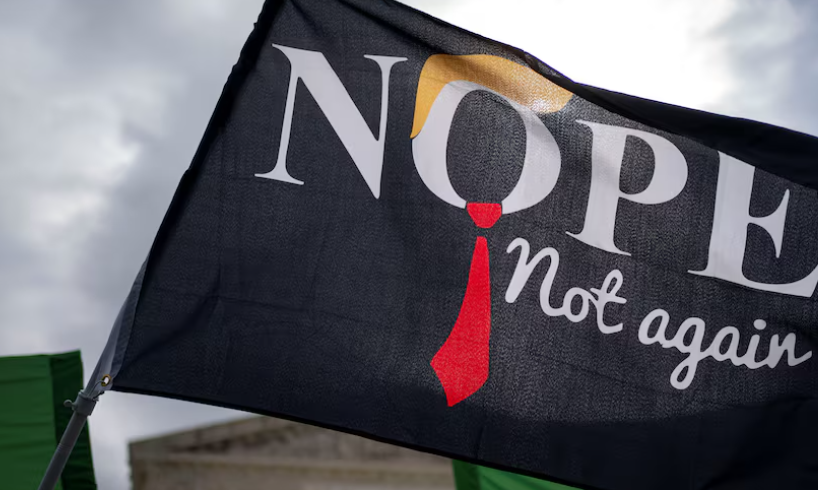The Supreme Court’s conservative justices signaled their support on Thursday for granting U.S. presidents some level of protection from criminal charges for certain acts performed in office as they tackled Donald Trump’s claim of immunity from prosecution in his efforts to overturn his 2020 election loss.
During approximately 2-1/2 hours of arguments in the case, most of the justices appeared unlikely to embrace Trump’s most far-reaching argument that presidents have “absolute immunity” for official acts. This assertion seemed to weaken under hypothetical questions involving actions like selling nuclear secrets, taking bribes, or ordering coups or political assassinations.
However, the conservative justices, holding a 6-3 majority on the nation’s top judicial body, expressed concern about presidents lacking any degree of immunity, particularly for less egregious acts. The exact parameters of such a ruling were unclear after arguments exploring the extent of presidential powers.
Trump, aiming to regain the White House this year, appealed after lower courts rejected his request for immunity from four election-related criminal charges, arguing that he was acting as president when he took the actions leading to the indictment obtained by Special Counsel Jack Smith.
The Supreme Court’s eventual ruling may narrow the special counsel’s allegations against Trump, but it seemed likely that at least parts of the indictment would survive.
Trial could be postponed
However, the decision could further postpone Trump’s trial if the Supreme Court directs lower courts to determine how to apply its newly formulated view of immunity. Smith was present during the arguments.
Conservative Justice Samuel Alito raised concerns about incumbent presidents who lose re-election being vulnerable to vindictive prosecution by the next administration. He suggested they would be in a “peculiarly precarious position.”
Chief Justice John Roberts expressed concern about abusive prosecutions of presidents in the absence of immunity. He highlighted the ease with which prosecutors can secure indictments from grand juries and questioned whether reliance on prosecutors’ good faith would suffice in some cases.
Trump, the Republican candidate challenging Democratic President Joe Biden in the Nov. 5 election, is the first former U.S. president to face criminal prosecution. He has pleaded not guilty in this case and in three other criminal cases, including an ongoing trial on New York state charges related to hush money paid to a porn star shortly before the 2016 U.S. election.
Trump’s attorney, D. John Sauer, argued that without presidential immunity from criminal prosecution, “there can be no presidency as we know it.” He emphasized that no president had ever been prosecuted for official acts in the 234 years of American history.
Liberal Justice Ketanji Brown Jackson challenged Sauer’s argument by citing President Gerald Ford’s pardon of Richard Nixon following Nixon’s 1974 resignation amid the Watergate scandal. She questioned the need for such pardons if presidents couldn’t be prosecuted.
Sauer faced sharp questioning from the court’s liberals as he advanced his theory that presidents enjoy “absolute immunity” for acts taken in their official capacity. Jackson suggested that blanket immunity risked turning the Oval Office into a hub of criminal activity.
Response to questions
In response to questions from liberal Justice Elena Kagan, Sauer argued that if structured as official acts, a president could not be prosecuted even for severe actions like selling nuclear secrets or ordering a military coup unless impeached and removed from office by Congress. Kagan expressed concern over such broad immunity.
The conservative justices appeared inclined to send the case back to lower courts for further analysis. They sought clarification on which of Trump’s actions cited by the prosecution were taken in an official capacity and whether any official acts deserved some level of immunity.
Such a ruling could further delay Trump’s trial if lower courts are tasked with conducting a thorough investigation. The Supreme Court’s decision to delay arguments over immunity until this month already postponed Trump’s trial, which had been scheduled for March. A ruling is expected by the end of June, potentially affecting the timing of Trump’s trial.
If Trump wins the presidency again, he could attempt to halt the prosecution or potentially pardon himself for any federal crimes. The court’s role in this case highlights its significant impact on presidential races and the functioning of American democracy.

